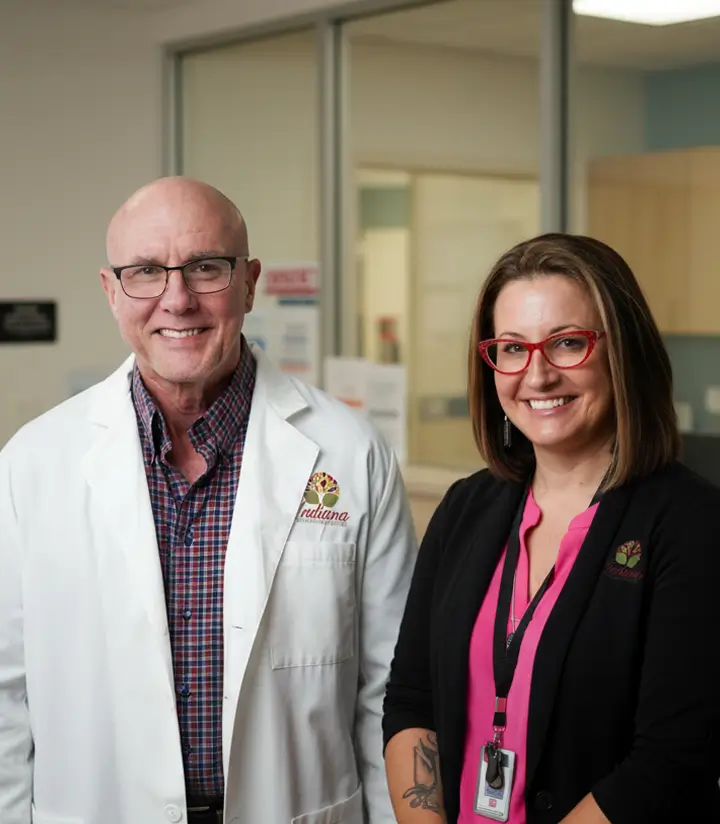Finding Hope: Strategies To Cope With Depression
Discover effective ways to manage depression at Indiana Center for Recovery and take control of your life today.
In 2023, 19.1% of people needed treatment for substance use, but only 4.5% received it ⓘ.
Treatment offers structured support when mental health or substance use disrupts daily life. It’s a comprehensive process that focuses on stability, skill-building, and long-term recovery.
Treatment addresses mental health, substance use, or both through professional support. It often includes therapy, medical care, coping skills, and community connection to help people regain stability and function.
It’s not a quick fix. Treatment is a process—whether it means managing anxiety, working through trauma, or recovering from addiction. The goal of treatment is lasting recovery beyond the crisis.
The most effective treatment plans are flexible and built around the whole person—not just the diagnosis.
Treatment is offered at different levels of intensity based on your symptoms, safety needs, and support system.
No matter the level of care, most treatment plans include a combination of evidence-based services designed to support physical, mental, and emotional recovery.
These components work together to address not just symptoms but the underlying issues behind them.
There’s no set timeline. It depends on the level of care, severity of symptoms, and how you respond.
The goal isn’t to finish fast—it’s to make real progress that lasts.
Recovery doesn’t end after treatment. Aftercare helps maintain progress and reduce relapse risk. These services reinforce what was built during treatment and offer support through transitions.
Aftercare may include:
Curious about what treatment involves or how to get started? Our blog breaks it down—from understanding different levels of care to exploring therapy options, medication, and what to expect during recovery.
Discover effective ways to manage depression at Indiana Center for Recovery and take control of your life today.
Addiction is a formidable challenge that affects millions of individuals worldwide. It takes a toll on physical health, strains relationships, and hinders personal growth.…
Learn about effective harm reduction strategies for substance abuse recovery with Indiana Center for Recovery
When should you go to a therapist? Is a psychiatrist better than a therapist? Indiana Center for Recovery explains here.
Smash the stigma. Click here to find effective treatment options for first responders with Indiana Center for Recovery.
The stigma surrounding mental health in first responders poses a challenge, but support is available.
Explore the groundbreaking Ozempic research for addiction treatment with Indiana Center for Recovery.
Learn about the link between nature and mental health. Improve your mental health with Indiana Center for Recovery.
Indianapolis residents can find drug and alcohol addiction treatment at Indiana Center for Recovery.
Indiana Center for Recovery offers inpatient drug rehab. Helping our community thrive through behavioral healthcare.
Indiana Center for Recovery provides integrated care tailored to your recovery needs. Our comprehensive services include detox, residential programs, outpatient support, and family programs.
We also have dual diagnosis treatment for individuals with co-occurring mental health disorders.

Error: Contact form not found.

 Get Answers Now
Get Answers NowYou don’t have to figure this out alone. We can guide you through your options—completely confidential and with zero commitment.
100% Private